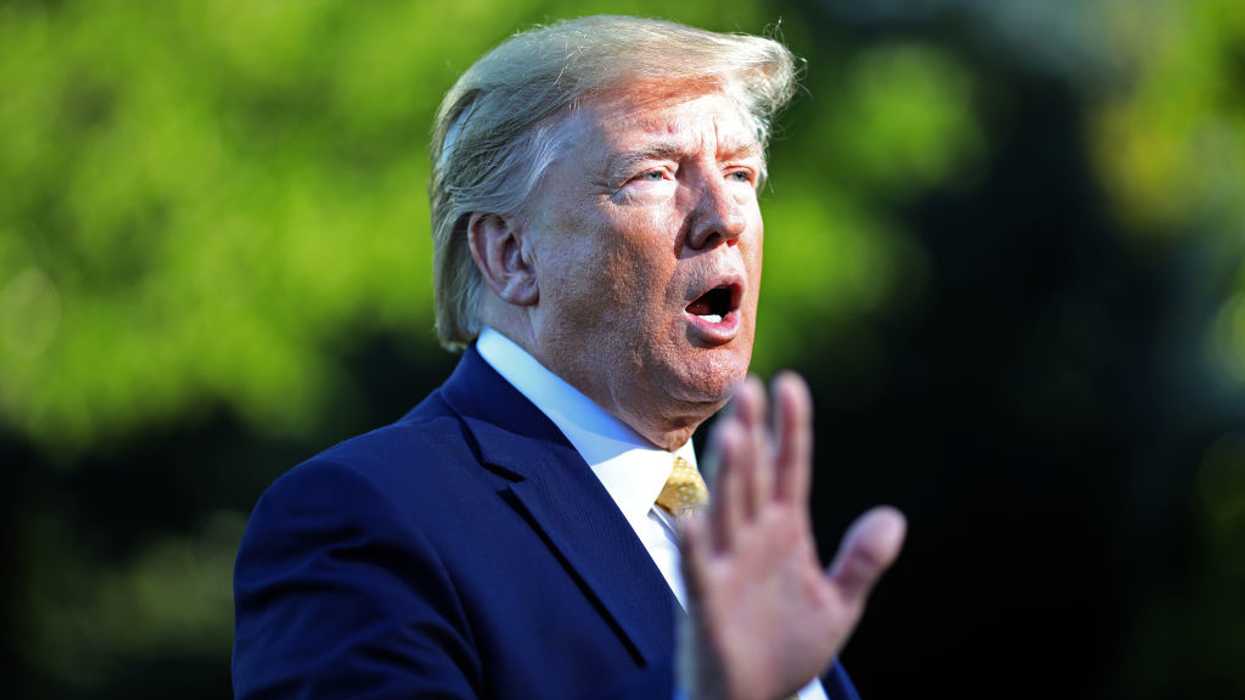The prohibition on House members serving as directors of outside groups should include nonprofit and private company boards, not only publicly traded enterprises, three prominent watchdog groups say.
The House has barred its members from such corporate boards only since January. The new Democratic majority changed the rules largely in response to the case of Republican Rep. Chris Collins of New York, charged a year ago with fraud, conspiracy and lying to the FBI in an alleged insider stock trading scheme involving Innate Immunotherapeutics, a biotech company where he was a board member. (Collins was re-elected last fall and is set to go on trial in February.)
The rules change resolution also set up a pair of House members to help the Ethics Committee recommend by the end of the year whether members and their aides should also be restricted from holding other outside positions.
Craig Holman of Public Citizen, a progressive consumer and democracy reform advocacy group, told the panel that House members holding board positions at private entities pose a widespread risk of conflicts of interest. He cited unpublished reporting by The New York Times that at least 60 members sit on the boards of private companies, most of which are limited liability corporations.
"I would like to again urge you to go a little further than banning members from sitting on publicly owned corporate boards," he said at a hearing in late July. "The same types of conflicts of interest apply to for-profit corporations. And so, I encourage you to take a look at extending the ban to for-profit corporations across the board."
That recommendation was also endorsed in a written statement from Issue One, a cross-partisan political reform group. (It is incubating, but journalistically independent from, The Fulcrum)
Susan Wild of Pennsylvania, the Democrat on the working group, said she was "very concerned" about members' relationship to LLCs. At a minimum, she said she would propose that all partners in such entities be disclosed on congressional financial disclosures.
Donald Sherman, deputy director at Citizens for Responsibility and Ethics in Washington (CREW), said the potential for conflicts of interest also applies to positions at closely held companies.
CREW, Public Citizen and Issue One also asked the committee to consider restricting members from taking board positions at nonprofit organizations, specifically those that lobby the federal government, receive public funds or engage in "dark money" spending to influence elections.
Delaney Marsco, an ethics attorney at Campaign Legal Center, said the new rule banning positions at publicly traded companies was an "important first step" but urged the House to go further, including a ban on members holding positions at companies with federal contracts.
Other recommendations to the working group included further restricting congressional stock trading or ownership. But the Republican member, Van Taylor of Texas, reminded the witnesses that the panel's charge was limited to studying outside positions.




















Eric Trump, the newly appointed ALT5 board director of World Liberty Financial, walks outside of the NASDAQ in Times Square as they mark the $1.5- billion partnership between World Liberty Financial and ALT5 Sigma with the ringing of the NASDAQ opening bell, on Aug. 13, 2025, in New York City.
Why does the Trump family always get a pass?
Deputy Attorney General Todd Blanche joined ABC’s “This Week” on Sunday to defend or explain a lot of controversies for the Trump administration: the Epstein files release, the events in Minneapolis, etc. He was also asked about possible conflicts of interest between President Trump’s family business and his job. Specifically, Blanche was asked about a very sketchy deal Trump’s son Eric signed with the UAE’s national security adviser, Sheikh Tahnoon.
Shortly before Trump was inaugurated in early 2025, Tahnoon invested $500 million in the Trump-owned World Liberty, a then newly launched cryptocurrency outfit. A few months later, UAE was granted permission to purchase sensitive American AI chips. According to the Wall Street Journal, which broke the story, “the deal marks something unprecedented in American politics: a foreign government official taking a major ownership stake in an incoming U.S. president’s company.”
“How do you respond to those who say this is a serious conflict of interest?” ABC host George Stephanopoulos asked.
“I love it when these papers talk about something being unprecedented or never happening before,” Blanche replied, “as if the Biden family and the Biden administration didn’t do exactly the same thing, and they were just in office.”
Blanche went on to boast about how the president is utterly transparent regarding his questionable business practices: “I don’t have a comment on it beyond Trump has been completely transparent when his family travels for business reasons. They don’t do so in secret. We don’t learn about it when we find a laptop a few years later. We learn about it when it’s happening.”
Sadly, Stephanopoulos didn’t offer the obvious response, which may have gone something like this: “OK, but the president and countless leading Republicans insisted that President Biden was the head of what they dubbed ‘the Biden Crime family’ and insisted his business dealings were corrupt, and indeed that his corruption merited impeachment. So how is being ‘transparent’ about similar corruption a defense?”
Now, I should be clear that I do think the Biden family’s business dealings were corrupt, whether or not laws were broken. Others disagree. I also think Trump’s business dealings appear to be worse in many ways than even what Biden was alleged to have done. But none of that is relevant. The standard set by Trump and Republicans is the relevant political standard, and by the deputy attorney general’s own account, the Trump administration is doing “exactly the same thing,” just more openly.
Since when is being more transparent about wrongdoing a defense? Try telling a cop or judge, “Yes, I robbed that bank. I’ve been completely transparent about that. So, what’s the big deal?”
This is just a small example of the broader dysfunction in the way we talk about politics.
Americans have a special hatred for hypocrisy. I think it goes back to the founding era. As Alexis de Tocqueville observed in “Democracy In America,” the old world had a different way of dealing with the moral shortcomings of leaders. Rank had its privileges. Nobles, never mind kings, were entitled to behave in ways that were forbidden to the little people.
In America, titles of nobility were banned in the Constitution and in our democratic culture. In a society built on notions of equality (the obvious exceptions of Black people, women, Native Americans notwithstanding) no one has access to special carve-outs or exemptions as to what is right and wrong. Claiming them, particularly in secret, feels like a betrayal against the whole idea of equality.
The problem in the modern era is that elites — of all ideological stripes — have violated that bargain. The result isn’t that we’ve abandoned any notion of right and wrong. Instead, by elevating hypocrisy to the greatest of sins, we end up weaponizing the principles, using them as a cudgel against the other side but not against our own.
Pick an issue: violent rhetoric by politicians, sexual misconduct, corruption and so on. With every revelation, almost immediately the debate becomes a riot of whataboutism. Team A says that Team B has no right to criticize because they did the same thing. Team B points out that Team A has switched positions. Everyone has a point. And everyone is missing the point.
Sure, hypocrisy is a moral failing, and partisan inconsistency is an intellectual one. But neither changes the objective facts. This is something you’re supposed to learn as a child: It doesn’t matter what everyone else is doing or saying, wrong is wrong. It’s also something lawyers like Mr. Blanche are supposed to know. Telling a judge that the hypocrisy of the prosecutor — or your client’s transparency — means your client did nothing wrong would earn you nothing but a laugh.
Jonah Goldberg is editor-in-chief of The Dispatch and the host of The Remnant podcast. His Twitter handle is @JonahDispatch.